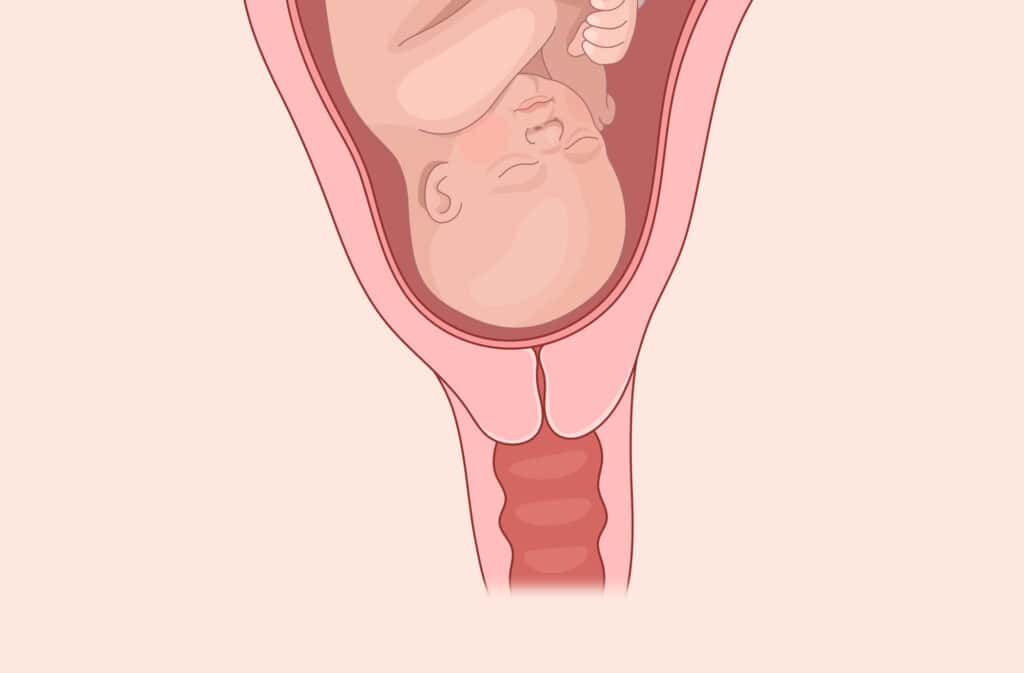Femia > Health Library > Pregnancy > Pregnancy health > Missed miscarriage: Causes, symptoms, and management
Missed miscarriage: Causes, symptoms, and management

- Updated Feb 11, 2025
- Published
CRAFTED BY HUMAN
Crafted by human At Femia, we provide accurate and up-to-date information at every stage of your journey, from trying to conceive, pregnancy and postnatal support. All content is created by a real person based on in-depth research and own professional experience. Femia ensures that you will receive expert advice, strict accuracy and a personalized approach from our authors/medical experts. Learn more about our editorial policy.
FACT CHECKED
Fact checked At Femia Health, we maintain the highest standards of editorial excellence in delivering content focused on helping you conceive, guiding you through pregnancy, and supporting you postpartum. Explore our content review principles to learn how we ensure the accuracy and quality of our health and lifestyle tips for every stage of your journey.
A missed miscarriage, also called a silent miscarriage, occurs when the embryo or fetus has stopped developing, but the body has not yet recognized the loss.
Missed miscarriages are typically symptomless and are often found during routine pregnancy scans. If not managed promptly, it can lead to complications such as infection or excessive bleeding, which is why timely medical attention is important.
Missed miscarriages can be managed naturally, medically, or surgically. Your healthcare provider can help you choose the best option for you.
Missed miscarriages can be extremely upsetting, and it’s normal to go through a period of grieving. Reach out to loved ones or a professional to help you navigate this difficult time and support your emotional recovery.
A missed miscarriage, also called a silent miscarriage, is when a baby has stopped developing, but the body has not recognized the loss. Because the body has not recognized that the embryo or fetus has died, no physical miscarriage has happened yet.
Missed miscarriages can be extremely emotionally challenging. They’re often discovered during routine ultrasound scans and can feel especially shocking, because there are usually few, if any, warning signs.
Here, we will help you to understand what a missed miscarriage is, how common they are, and what can cause them.
Femia helps millions of women understand
their pregnancy symptoms and take action
What is a missed miscarriage?
A missed miscarriage is when the fetus or embryo has died, and the pregnancy is no longer viable, but the body hasn’t recognized this. Therefore, there are no physical signs of a miscarriage.
With a missed miscarriage, a woman can still have pregnancy symptoms and produce pregnancy hormones even if the fetus stopped developing weeks before. This is why a missed miscarriage often goes unnoticed until the woman has an ultrasound scan.
A missed miscarriage is one type of miscarriage, others include:
- Threatened miscarriage. Involves symptoms like vaginal bleeding and cramping, but the cervix has not opened, and the pregnancy may still be viable.
- Inevitable miscarriage. This is when a miscarriage is inevitable, as your cervix is open, and there are symptoms like bleeding and cramping.
- Complete miscarriage. This is when the body has passed all of the pregnancy tissue, and the miscarriage is complete. There will have been significant bleeding and cramping.
- Incomplete miscarriage. This is when the body hasn’t passed all of the pregnancy tissue and may need additional help. There will have been some bleeding and possibly some abdominal pain.
In contrast to other types of miscarriage, a missed miscarriage is characterized by the absence of physical symptoms. While any pregnancy loss can be extremely upsetting, the lack of symptoms to warn you of a loss can make the diagnosis of a missed miscarriage particularly unexpected and emotionally challenging.
👉Find out more: Which food can cause miscarriage: A comprehensive guide
How common is a missed miscarriage?
A miscarriage is typically defined as the loss of a pregnancy within the first 20 weeks. According to the American College of Obstetricians and Gynecologists (ACOG), about 80% of miscarriages occur within the first 12 weeks of pregnancy. Early pregnancy loss (a miscarriage in the first trimester) affects approximately 10% of pregnancies.
The exact percentage of pregnancies that end in missed miscarriage is not fully known. However, they are thought to make up a significant proportion of miscarriages. A large 2019 study published in the Human Reproduction journal looked at the frequency of miscarriage amongst women in Finland and found that missed miscarriage accounted for 38.8% of registered miscarriages. According to data from the Mayo Clinic, approximately 10-20% of known pregnancies end in miscarriage, with early pregnancy loss occurring in 8-15% of clinically recognized pregnancies, as reported by the American College of Obstetricians and Gynecologists (ACOG).
| Good to know |
|---|
| Early pregnancy loss is an unfortunately common experience. While it can be an extremely emotionally challenging time, it doesn’t always mean that you will face further fertility problems. Many women who have experienced a miscarriage will go on to have a successful pregnancy. |
Chances of a missed miscarriage
The chances of having a missed miscarriage are relatively low, but advancing age and a raised BMI can increase your risk. When talking about missed miscarriages, it’s important to remember that risk factors are not the same as cause. Some women can have no risk factors and still experience a missed miscarriage, while others can seemingly have lots of risk factors and never have a miscarriage.
A 2022 study published in Reproductive Biology and Endocrinology found that being over 30 increased your risk of having a missed miscarriage, as did having a BMI greater than 24. However, this study focused solely on women of Chinese ethnicity, so it’s uncertain how applicable these findings are to women from other ethnic backgrounds.
Age and miscarriage risk
The chances of suffering an early pregnancy loss change depending on the age of the mother:
| Age | Risk of miscarriage (according to ACOG) |
|---|---|
| 20–30 | 9–17% |
| 35 | 20% |
| 40 | 40% |
| 45 | 80% |
Missed miscarriage symptoms
A missed miscarriage often has no noticeable symptoms, which is why it’s often only detected during a routine check-up. However, some signs that could indicate a missed miscarriage include:
- Loss of pregnancy symptoms. A sudden disappearance of pregnancy symptoms like breast tenderness, nausea, or fatigue.
- Spotting or light bleeding. Light bleeding, or spotting, can sometimes occur.
These signs don’t always mean that there has been a missed miscarriage and can occur in healthy pregnancies. Bleeding during early pregnancy is common and can have many causes—including implantation bleeding, cervical polyps, and small hematomas.
Often, the most definitive sign of a missed miscarriage is when there is no fetal heartbeat found during an ultrasound scan. Depending on when the pregnancy stopped developing, the fetus may also appear much smaller than expected. If you have any concerns about a missed miscarriage, reach out to your healthcare provider. They will be able to discuss your worries with you and decide on the most appropriate next step.
Femia helps millions of women understand
their pregnancy symptoms and take action
Why do missed miscarriages happen?
Miscarriages, including missed miscarriages, are usually due to natural and unavoidable factors and are rarely caused by anything the mother did, or didn’t, do. While you can sometimes reduce your risk of having a miscarriage, the majority of miscarriages can’t be prevented.
Your healthcare provider will occasionally be able to give you a reason for your miscarriage, but in most cases, especially when it’s a first miscarriage, the exact cause will remain unknown.
What causes a missed miscarriage?
Common causes of missed miscarriage include:
- Chromosomal abnormalities—according to the ACOG, 50% of miscarriages are due to a chromosomal abnormality in the fetus.
- Uterine or cervical abnormalities, like severe fibroids or incompetent cervix.
- Hormonal imbalances.
- blood clotting disorders, such as antiphospholipid syndrome, are important risk factors for early pregnancy loss.
- Autoimmune disorders, like lupus.
- Infections.
- Diabetes, especially if poorly controlled.
- Thyroid disorders.
- Certain medications, like Accutane.
- Lifestyle factors such as smoking, alcohol consumption, and recreational drug use.
Although the cause of miscarriage is not normally identified, most women will go on to have a successful pregnancy. According to the Mayo Clinic, only 2% of women will have two miscarriages in a row. And,0 even women who have had three or more miscarriages have a 60–80% chance of having a successful pregnancy.
Diagnosing a missed miscarriage
If you, or your healthcare provider, have concerns that you’ve had a missed miscarriage, they will need to confirm the diagnosis. To confirm a miscarriage, they may use the following:
- Ultrasound scan to check for fetal heartbeat and size. If the results of the scan aren’t clear, they may need to repeat the scan about a week later.
- Blood tests to measure levels of the pregnancy hormone hCG. This may be repeated 48 hours later to compare the levels.
- Physical examination. Depending on symptoms, they may need to check whether your cervix is open.
If you’ve had two or more consecutive miscarriages, your healthcare provider may recommend further tests to try to understand if there is an underlying cause. This can involve blood tests for both you and your partner to see if there are any genetic abnormalities or health conditions that could be causing the miscarriages.
What happens after a missed miscarriage?
If you’ve been diagnosed with a missed miscarriage, your healthcare provider will discuss the options available to manage a missed miscarriage. These may include:
- Expectant management: You may be able to wait for your body to naturally expel the pregnancy tissue, but prolonged waiting beyond a few weeks may increase the risk of infection, especially if tissue remains in the uterus for an extended period. It’s important to have regular follow-up scans to monitor your condition and consider medical or surgical management if necessary.
- Medical management: Medications can be used to speed up the process of expelling pregnancy tissue. Some women choose to take medication as soon as they’ve been diagnosed with a missed miscarriage, while others may wait to see if the body naturally expels the pregnancy before taking them.
- Surgical management: Depending on how far the pregnancy had progressed, infection risk, whether you have heavy bleeding, or through personal choice, you may have surgery to remove the pregnancy. Two types of surgery can be performed, and your healthcare provider will be able to discuss which option is most suitable for you.
For most women, once the body has started to expel the pregnancy, it should take anywhere from a few hours to a few days to complete the miscarriage. You shouldn’t have sex after a miscarriage or put anything in your vagina, like tampons, for one to two weeks after symptoms have stopped. If you have any concerns about how long it is taking or the symptoms you’re experiencing, don’t hesitate to reach out to a healthcare provider.
Getting pregnant after missed miscarriage
Getting pregnant after a miscarriage is possible from your next menstrual cycle, even if you haven’t had a period. However, it’s important to make sure that you’re both physically and emotionally ready before trying to conceive again. If you’re not ready to become pregnant again, make sure you’re using contraception.
Your healthcare provider will be able to advise you about how long to wait before trying again, but in general, the recommendation is to wait at least until you’ve had a normal period. This helps with dating a pregnancy if you conceive.
👉Find out more: Chemical pregnancy symptoms: What to know about this early loss
Coping with the emotional impact
Many women find that the physical recovery from a missed miscarriage is quicker than the emotional recovery, which may involve prolonged grief, depression, or anxiety. Accessing professional counseling or support groups can help navigate these challenging emotions and promote emotional healing. Everyone processes a miscarriage differently, and there is no right or wrong way to feel.
Here are some tips to help support your emotional recovery:
- Acknowledge your feelings. It’s completely normal to grieve a lost pregnancy, and these feelings can surface right away or take a few weeks to develop. Some women recover quicker emotionally than others, but physical symptoms of bereavement, like feeling tired, losing your appetite, and struggling to sleep, are common. Experiencing feelings of guilt, shock, sadness, or anger is also completely normal.
- Seek support from loved ones. Whether you need physical, practical, or emotional support, opening up to your loved ones about your miscarriage can help you to recover. It’s also okay if you prefer not to talk about it; different people grieve in different ways.
- Access support groups. There are many national and local groups out there that specialize in supporting people through miscarriage. Joining a support group of people who have been through a similar experience or accessing professional counseling can help you to process your grief. Your healthcare provider should be able to give you a list of useful organizations and provide support and guidance.
- Be open with your partner. Being open with your partner about your feelings can help you both to navigate this difficult time. There is no right way to grieve a miscarriage, but being open with how you’re feeling can help you to avoid additional stress in your relationship.
When to consult a doctor
Once your body has started to expel the pregnancy, it can take anywhere from a few hours to a few days for you to recover physically. For most women, a miscarriage is straightforward; however, complications can sometimes occur. If you experience any of the following symptoms, seek urgent medical advice:
- Heavy bleeding (soaking through more than two menstrual pads an hour).
- Signs of infection, like fever, chills, or a foul-smelling vaginal discharge.
- Intense pain or cramping in your abdomen.
Your healthcare provider will also be able to advise you on what follow-up care, if any, you need. This could be further scans to confirm that the body has fully expelled the pregnancy, or you may simply need to take a pregnancy test a few weeks later.
If this is not your first miscarriage, then your healthcare provider may also recommend further testing to identify any cause for recurrent miscarriage. This can include further blood tests for both you and your partner as well as procedures to check the inside of your uterus.
Questions from the Femia community
Can stress cause a missed miscarriage?
No, everyday stress does not cause missed miscarriages. Most are due to chromosomal issues or other unavoidable factors. However, chronic stress can impact your overall health and may even affect fertility. If you’re suffering from stress, reach out to a trusted healthcare professional. They will be able to offer you support and guidance to help you cope.
Are missed miscarriages hereditary?
While most missed miscarriages aren’t genetic, a history of recurrent losses may warrant genetic testing. If you have had multiple miscarriages, then your healthcare provider might recommend further testing for both you and your partner to determine whether there are any genetic causes for the miscarriages.
Can you have a missed miscarriage with no symptoms at all?
Yes, missed miscarriages often have no noticeable symptoms, and you can even still have a positive pregnancy test. This is why many missed miscarriages aren’t diagnosed until the woman has an ultrasound scan, which shows no fetal heartbeat.
Does a missed miscarriage increase the risk of future miscarriages?
Not necessarily; the majority of women go on to have successful pregnancies. However, those with recurrent miscarriages may benefit from comprehensive evaluation and supportive care to address potential underlying causes.
The bottom line
A missed miscarriage can be an extremely upsetting time. By nature, there are often no warning signs that the pregnancy has stopped developing, and the diagnosis can come as a complete shock during routine pregnancy check-ups. The vast majority of missed miscarriages are caused by unavoidable factors, like chromosomal abnormalities, and there is nothing that the mother could have done to avoid it.
A missed miscarriage is typically symptomless; however, a sudden loss of pregnancy symptoms or light bleeding or spotting can be a sign that a pregnancy has stopped developing. You will need an ultrasound scan to diagnose a missed miscarriage, and some women may require more than one scan or blood test before the diagnosis is confirmed.
Many women find the physical recovery from a missed miscarriage quicker than the emotional recovery. It’s important to remember that there is no right or wrong way to process a miscarriage; everyone grieves differently. Reaching out for support during this often difficult time, whether that’s from family and friends, or a professional, can help your recovery.
References
- “Early Pregnancy Loss.” ACOG, www.acog.org/womens-health/faqs/early-pregnancy-loss.
- Jiang, Wei-Zhen, et al. “Risk Factors for Missed Abortion: Retrospective Analysis of a Single Institution’s Experience.” Reproductive Biology and Endocrinology, vol. 20, no. 1, Aug. 2022, https://doi.org/10.1186/s12958-022-00987-2.
- Linnakaari, R., et al. “Trends in the Incidence, Rate and Treatment of Miscarriage—nationwide Register-study in Finland, 1998–2016.” Human Reproduction, Sept. 2019, https://doi.org/10.1093/humrep/dez211.
- “Miscarriage.” Cleveland Clinic, 1 May 2024, my.clevelandclinic.org/health/diseases/9688-miscarriage.
- Miscarriage – Diagnosis and Treatment – Mayo Clinic. www.mayoclinic.org/diseases-conditions/pregnancy-loss-miscarriage/diagnosis-treatment/drc-20354304.

What are the chances of getting pregnant while breastfeeding? Discover the signs of returning fertility while breastfeeding and understand the science behind it.

Use this simple guide to check your cervix regularly. Knowing how your cervix evolves during your cycle can help identify specific early pregnancy changes.

Is period sex bad for you? No, not at all. Does having sex on your period help with cramps? Yes, it might even come with some benefits like pain relief and mood boost.

